
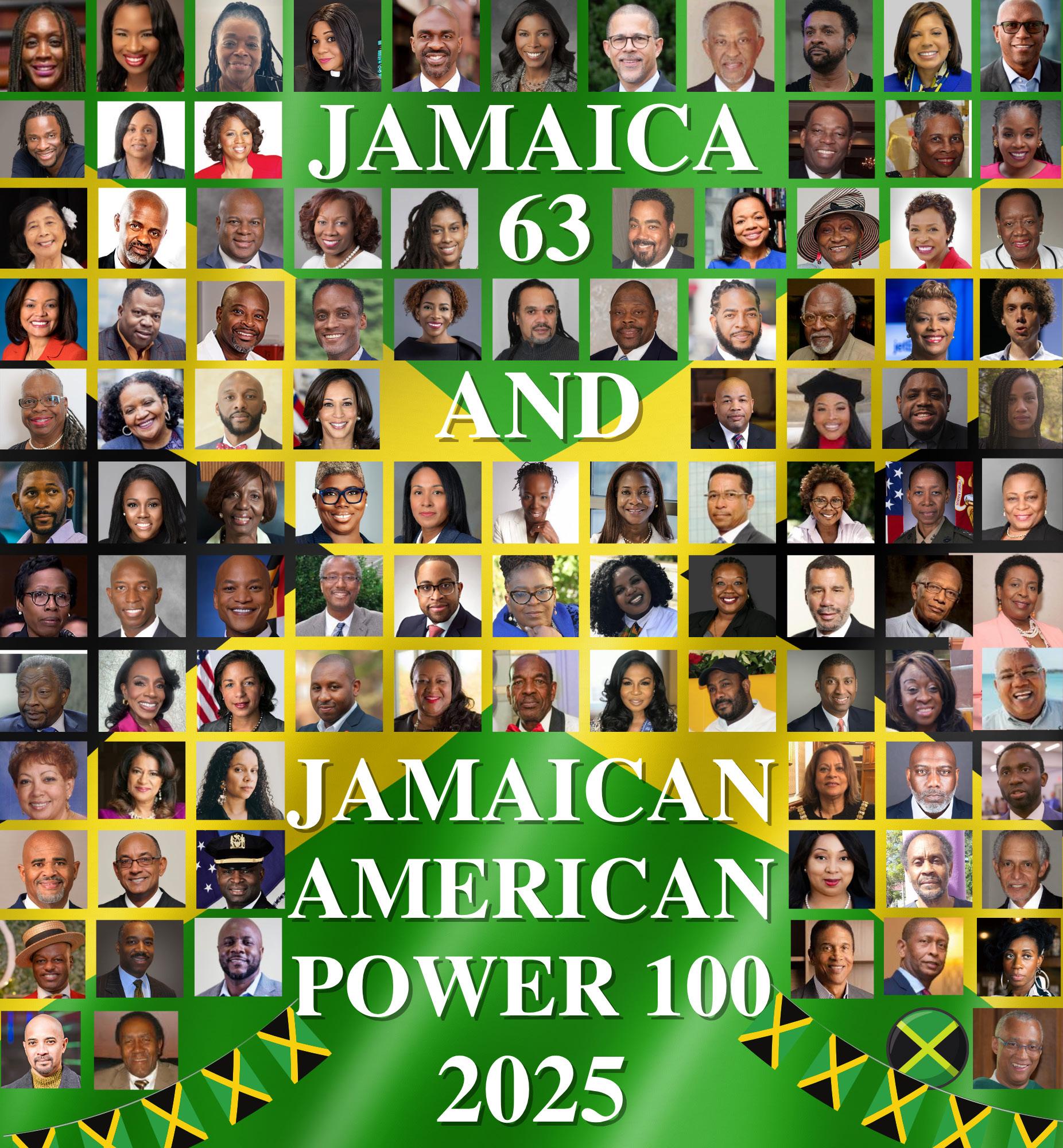



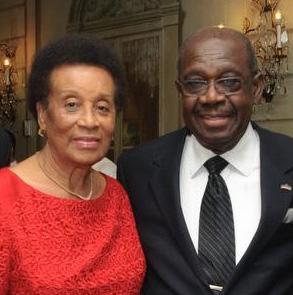
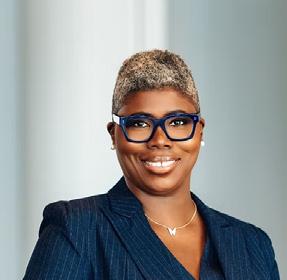
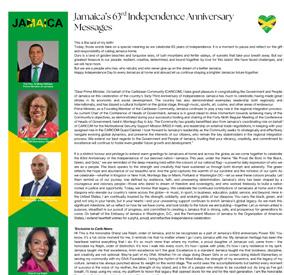
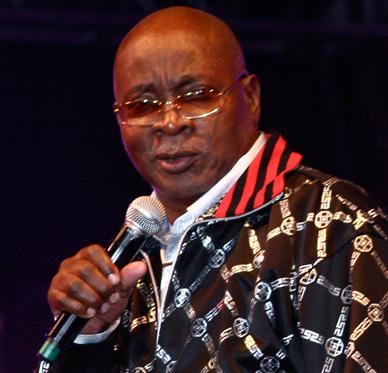
Brand Jamaica: Pride, Power, and the Path Forward by The Publisher and The President - P 10
Jamaica Power 100 Profiles - P 20 + 21
Mounting civilian casualties in Sudan as fighting intensifies
It has now been 842 days since conflict between troops from the military government and their former allies-turned-rivals in the paramilitary Rapid Support Forces erupted in Sudan, turning the country into the world’s largest humanitarian crisis.
In Myanmar, conflict and floods collide as UN warns of deepening crisis
Farhan Haq, UN Deputy Spokesperson, stressed the need for unimpeded relief operations and a peaceful path out of crisis.
Jamaica 63 Messages - P 8
A Regal Tribute: Calypso Royalty Honored in ‘Thank You, Sparrow’ Celebration - P 26

Heavy fighting continues in North Darfur State, with multiple civilian casualties reported in recent days – most notably during clashes in the state capital, El Fasher, on 1 and 2 August – following earlier violence between armed groups near the Abu Shouk camp for displaced people, which currently hosts 25,000 residents.
One year after famine was confirmed in Zamzam camp on the outskirts of El Fasher, the city remains under siege, with no food aid deliveries entering by road, leaving residents of the regional capital increasingly facing starvation.
Prices of food items such as sorghum and wheat are more than four times higher than elsewhere in the country, while many families are unable to afford even the most basic items. “Limited cash assistance continues, but it is nowhere near enough to meet rising needs,” said Deputy UN Spokesperson Farhan Haq on Monday during the daily briefing in New York.
Cholera spreads in North Darfur, 640,000 children under threat, UNICEF warns
More than 1,180 cholera cases – including an estimated 300 in children – and at least 20 deaths have been reported in Tawila, a town that has absorbed over half a million people fleeing violence since April.
Across the wider Darfur region, the toll is even more alarming: nearly 2,140 cases and at least 80 fatalities as of 30 July. “Despite being preventable and easily treatable, cholera is ripping through Tawila and elsewhere in Darfur, threatening children’s lives, especially the youngest and most vulnerable,” said Sheldon Yett, UNICEF Representative in Sudan.
With hospitals bombed and many health facilities shuttered, Tawila – located just 70 kilometers from the besieged state capital El Fasher – has become a flashpoint of overlapping crises.
Limited access to clean water, poor sanitation and overcrowded camps have created ideal conditions for the disease to spread.
The cholera outbreak is unfolding against a backdrop of deepening catastrophe. Since the war between rival militaries erupted in April 2023, critical infrastructure has been decimated, millions displaced and food systems dismantled. Famine has already been declared in at least 10 locations, including the vast Zamzam camp, with over a dozen more areas at risk.
Sudan’s extreme vulnerability to climate shocks – from droughts to devastating floods – has further compounded the crisis, leaving families to navigate the deadly intersection of conflict, hunger, disease and environmental collapse.
“The UN remains concerned by ongoing violence in Myanmar, including aerial bombardment hitting civilians and civilian infrastructure,” he said, at the regular press briefing in New York.
“Civilians and humanitarian workers must be protected.”
His remarks come as monsoon rains and flooding – worsened by Cyclone Wipha – swept through parts of the country, further straining regions already destabilized by conflict and a devastating earthquake in March.
The crisis left more than 3.3 million people internally displaced, with another 182,000 seeking refuge abroad since the military coup in February 2021, according to the latest UN figures. In addition, over 1.2 million – mostly members of the minority Muslim Rohingya community –were forced to flee the country, driven by waves of violence.
The largest exodus took place in August 2017, when nearly one million Rohingya fled brutal violence and attacks by security forces, likened to a “textbook example of ethnic cleansing” by then UN High Commissioner for Human Rights Zeid Ra’ad Al Hussein.
Documenting despair and finding hope amidst the rubble of Gaza
Some 21 months have passed since the 7 October armed attacks on Israel which sparked the current brutal conflict.
Thousands have died and much of Gaza has been laid to waste, but life must continue, according to the correspondent, who is remaining anonymous for security reasons.
“Those who live here in Gaza don’t need long explanations to understand the meaning of this war.
It is enough to listen for a few minutes: Planes buzz incessantly overhead, and airstrikes silence everything except fear which, although invisible, fills every space between our tents and seeps into our bodies.
At night, there’s absolute darkness except for the flashes of bombing.
We sleep knowing that waking up is not guaranteed.
Every morning in Gaza is a new attempt to live, and every evening a challenge to survive. This is the harsh reality we live in.
I am one of more than two million Palestinians living under the burden of displacement. I document stories of war and despair while experiencing their full bitterness.
Since our home was destroyed in November 2023, the tent has become our safety. My family, once part of my private world, is now part of the stories I share with the world.

In a case described as “one of the most heinous” ever, High Court Judge Justice Paula Gilford on Wednesday ordered three men to spend the majority, if not all of the rest of their lives behind bars for a chilling series of violent crimes, including the brutal killing of an American couple during a daring escape from police custody last year.
The sentences were handed down late Wednesday, bringing a close to a case that captured national, regional and international attention.
Ron Mitchell, 30, was handed two life sentences for non-capital murder in connection with the deaths of Ralph Henry, 67, and Kathleen Brandel, 71, a couple from the
United States.
Mitchell, described by the prosecution as the “ringleader,” must serve at least 50 years before becoming eligible for parole. He was also sentenced to nine years and one month for housebreaking, five years and four months each on two counts of kidnapping, and 18 years and four months for robbery with violence.
His co-accused, Atiba Stanisclaus, 27, and Trevon Robertson, 21, were convicted of manslaughter for their roles in the same incidents.
Stanisclaus received 30 years on each count of manslaughter, nine years and one month for housebreaking, 17 years and four months
for the rape of Brandel, five years and four months and four years and 10 months for kidnapping, and 17 years and nine months for robbery with violence.
Robertson received 28 years on each count of manslaughter, seven years and seven months for housebreaking, and sentences of five years and four months and five years for kidnapping.
According to evidence presented by the Crown, the men stole the couple’s 45-foot catamaran, bound and gagged them, and then threw them into the sea as they fled Grenadian waters.
The court was told that as Ralph Henry attempted to swim toward a dinghy attached to the vessel, Mitchell steered the yacht over him, and the men continued on their escape journey into St Vincent, leaving the victims to perish at sea.
The bodies of the US citizens never recovered.
The harrowing ordeal began in mid-February 2024, when the trio escaped from the South St George Police Station, where they were held in custody in connection with a string of other violent offences, including rape, attempted rape, robbery with violence.
The men from the village of Paradise were later captured in St Vincent, where Mitchell was shot in both legs after allegedly attempting to disarm a Vincentian police officer. Mitchell, who has nine prior convictions
dating from 2012-17, was given a combined sentence of 31 years and eight months for rape, attempted rape, and indecent assault in a separate case involving a minor.
Stanisclaus, with 10 prior convictions, received 14 years, nine months, and 17 days for related offences.
Robertson, who had no previous convictions, was sentenced to 11 years, four months, and two days.
The court credited all three with 513 days already spent on remand in relation to the charge of escaping lawful custody.
In handing down her ruling, Gilford rejected arguments from the defense that poverty and social background should be considered mitigating factors in the case against the murder convicts.
She cited the gravity of the crimes, including its premeditated nature, and the defendants’ repeated criminal history as aggravating circumstances.
Gilford also took into account the international spotlight on the case and the potential damage to Grenada’s image as a peaceful, tourist-friendly destination.
The convicts, faces partially covered with bandanas, were escorted from the courtroom to a waiting police vehicle and transported back to Richmond Hill Prison, which might be their final home before their departure from earth. (CMC)
A dozen Democratic members of Congress have filed a federal lawsuit against the Trump administration, alleging that U.S. Immigration and Customs Enforcement (ICE) is unlawfully obstructing their constitutional oversight authority by denying them access to immigration detention facilities—particularly when visits are unannounced.
The lawsuit, filed in U.S. District Court in Washington, accuses the Department of Homeland Security (DHS) and ICE of erecting procedural barriers that block lawmakers from inspecting conditions in facilities where detainees are allegedly being held in overcrowded, unsanitary, and inhumane conditions. ICE has recently enforced a rule requiring members of Congress to provide at least seven days’ notice for entry and has outright barred access to some field offices, according to the complaint.
“Congress has a duty to ensure federal agencies are operating within the law—especially when billions of taxpayer dollars are being spent,” the lawsuit states. “ICE is unlawfully preventing that oversight at a time of rising arrests, troubling conditions,
and public concern.”
ICE Director Todd Lyons acknowledged in May that members of Congress have the legal right to conduct unannounced visits. However, DHS Secretary Kristi Noem has taken a harder line, suggesting lawmakers should formally request visits to avoid disrupting the executive branch’s constitutional authority. DHS Assistant Secretary for Public Affairs Tricia McLaughlin further defended the agency’s stance, citing concerns over safety and order at ICE facilities.
“They could have scheduled a tour, but instead they’re running to court to generate headlines and fundraising emails,” McLaughlin said in an emailed statement. She claimed the seven-day rule ensures operations are not impeded and added that any access to field offices must be personally approved by Secretary Noem.
The lawmakers argue that these conditions—especially in ICE field offices where detainees are reportedly being held with out beds or showers—warrant immediate and unfiltered access. They assert that ICE is improperly distinguishing between “detention centers” and “processing offic-
es” to circumvent oversight, even though individuals are confined in both.
Rep. Veronica Escobar (D-Texas) was denied entry to the El Paso Processing Center on July 9, despite notifying ICE of her intent to visit. Similarly, Rep. Jason Crow (D-Colorado) was turned away from the ICE Aurora Facility in Colorado on July 20. Rep. Daniel Goldman (D-New York) was also barred from visiting the ICE field office in Manhattan in June, where he was told oversight authority did not apply— even though detainees were being held there overnight.
Several other Democratic lawmakers encountered the same barriers. On July 21, Reps. Joe Neguse (D-Colorado), Bennie Thompson (D-Mississippi), and Jamie Raskin (D-Maryland) were denied entry to the ICE field office in Chantilly, Virginia, after learning people were being detained on-site.
The other plaintiffs in the lawsuit include California Reps. Norma Torres, Raul Ruiz, Jimmy Gomez, Jose Luis Correa, and Robert Garcia, as well as Rep. Adriano Espaillat (D-New York).
“No child should be sleeping on concrete,

and no sick person should be denied medical care,” said Rep. Gomez. “We’ve heard again and again that’s what’s happening inside Trump’s detention centers. This lawsuit makes clear: We will do our job, and we won’t let these agencies operate in the shadows.”
The lawsuit also highlights the surging ICE budget, citing a $45 billion allocation for detention funding—more than 13 times the agency’s current annual budget. Lawmakers argue that the scale of public investment demands transparency and robust congressional oversight.
As the case moves forward, it could set a significant precedent on the balance of power between Congress and the executive branch in immigration enforcement and government transparency.
Jamaica’s Supreme Court has denied an application from Prime Minister Andrew Holness seeking to strike out portions of a sworn affidavit by a senior official of the Integrity Commission, marking the latest development in an ongoing legal battle over the agency’s investigation into the prime minister’s finances.
In a ruling delivered Monday, Justice Althea Jarrett rejected Holness’ claim that several paragraphs in the 108-page affidavit by Craig Beresford, the Commission’s Director of Information and Complaints, were “scandalous, frivolous, vexatious,” and amounted to an abuse of process. Holness also sought access to redacted documents he argued were central to his defense but was similarly denied.
However, the court granted Holness and his co-claimants — Imperium Holdings Limited, Positive Media Solutions, and Positive Jamaica Foundation — leave to appeal the ruling. The court also ordered the Commis

Craig Beresford
sion to disclose select documents prepared during the controversial investigation, including a report by an international forensic accountant, which was handed over earlier this month.
A stay of proceedings was also approved, temporarily halting the October judicial review challenge until the appeal is resolved. The court dispute stems from a wide-ranging judicial review and constitutional claim filed in September 2024 by Holness and three
related corporate entities. The suit targets both Beresford and Kevon Stephenson, the Commission’s Director of Investigations, over what Holness argues is a flawed and unfair probe into his financial declarations and alleged illicit enrichment.
Stephenson had flagged concerns in 2021 over discrepancies in Holness’ financial filings, questions regarding tax compliance, and transactions exceeding J$470 million involving companies connected to the prime minister.
Holness has categorically denied any wrongdoing and maintains the Commission’s actions violate his constitutional rights and lack procedural fairness.
In his application, Holness challenged at least 12 paragraphs of Beresford’s affidavit, asserting that their content carried prejudicial weight without meaningful evidentiary value. However, the Integrity Commission, represented by law firm Hylton Powell, argued the statements were not only relevant
but directly responsive to Holness’ allegations and within Beresford’s direct knowledge.
Justice Jarrett agreed with the Commission’s position, allowing the contested paragraphs to remain part of the court record.
Holness’ legal team, Henlin Gibson Henlin, contends that the Commission overstepped its mandate and weaponized its investigatory powers against the prime minister.
With proceedings now on hold pending appeal, the legal tug-of-war over the Integrity Commission’s authority and the transparency of public officials’ finances continues to dominate headlines and fuel political tensions.
Observers note the case could have far-reaching implications for the scope of Jamaica’s anti-corruption framework and the accountability of its highest officeholders. Holness has yet to issue a public statement on the ruling but remains adamant that his actions have been above board.
As Jamaica marked Emancipation Day on August 1, Steven Golding, President of the Universal Negro Improvement Association and African Communities League (UNIA-ACL), issued a stirring call for Jamaicans to move beyond surface-level commemorations and embrace a deeper, more critical understanding of the nation’s emancipation legacy.
Golding warned that the historical gravity of Emancipation Day is increasingly being eclipsed by the proximity of Independence Day celebrations. The tendency to conflate the two observances, he argued, dilutes the unique and hard-fought triumph that emancipation represents.
“Emancipation was not the result of moral awakening in the British Parliament,” Golding asserted in an interview with The Gleaner. “It was the product of centuries of Black resistance—of our ancestors’ unrelenting struggle against enslavement, brutality, and the trafficking of African bodies. This prolonged defiance rendered the slave system unsustainable.”
Golding criticized what he described as the persistence of a “colonial narrative” in the national psyche—one that credits British benevolence for emancipation, rather than acknowledging the agency, resistance, and sacrifice of the enslaved. He identified this misconception as symptomatic of a broader educational failure.
To reclaim this narrative, Golding pointed to figures like Dutty Boukman, a Jamaican-born revolutionary whose
role in initiating the Haitian Revolution (1791–1804) sent shockwaves through the colonial world. Haiti’s victory, he noted, terrified imperial powers into accelerating abolitionist measures for fear of similar uprisings across the Caribbean.
Golding also invoked the haunting story behind Sabina Park, now Kingston’s iconic cricket venue. The grounds were named after an enslaved woman who was executed for killing her own child—a desperate act intended to spare him the atrocities of slavery. Her burial on the site, largely unknown to the public, underscores how many of Jamaica’s everyday landmarks remain untethered from their painful but powerful pasts.
“Our history has not been told truthfully,” Golding said. “It has been sanitized— taught as though freedom was bestowed upon us rather than wrested from an oppressive system by the blood and courage of our people.”
A National Memory in Danger of Erosion Emancipation Day, which commemorates the formal abolition of slavery in the British Caribbean on August 1, 1834, has long been a cornerstone of Jamaican identity. Though it was first celebrated through church services and community gatherings in the 1880s and officially recognized as a public holiday in 1893, the observance was controversially discontinued in 1962, the same year Jamaica gained independence. It was only reinstated in 1997, following growing calls for its revival. Golding sees the post-independence dis-
continuation as emblematic of a troubling tendency among Jamaican leadership to sideline the legacy of slavery and resistance in favor of post-colonial state-building narratives.
He further criticized the region’s failure to meaningfully commemorate the United Nations International Day of Remembrance of the Victims of Slavery and the Transatlantic Slave Trade, observed globally on March 25. Instituted in 2007, the date honors the millions who perished during the centuries-long trade in human lives. Yet, in the Caribbean—the epicenter of that tragedy—public acknowledgment remains minimal.
“Each November, world leaders gather to mourn the victims of the Jewish Holocaust, and we, as Black people, wear poppies in solemn solidarity. But where is the comparable recognition for the holocaust of our ancestors?” Golding asked. “Do our flags fly at half-mast on March 25 or August 1 to honor the fallen freedom fighters of African descent?”
Resistance as a Global Blueprint
Reverend Dr. Devon Dick echoed Golding’s sentiments, describing Jamaica’s emancipation struggle as a global model of nonviolent resistance. He praised National Hero Samuel Sharpe, who led the 1831 Baptist War, for his role in shaping a “blueprint for passive revolution.”
Dr. Dick advocated for renewed civic and educational engagement around Emancipation Day. He recommended expanding essay and quiz competitions, public
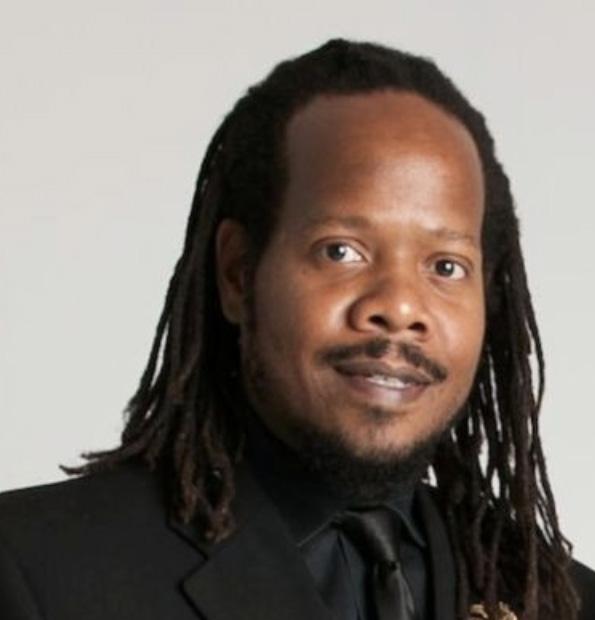
lectures, vigils, and other cultural programming that center the contributions of Jamaica’s freedom fighters.
“Civil society has a critical role to play,” he said. “While some churches and community groups have maintained the tradition of reflection, the media must also elevate these commemorations—giving them the same platform and prominence it gives to festivals and entertainment events.”
A Time for Reckoning
As the region reflects on its past and imagines its future, Golding’s appeal is ultimately one for historical reckoning. Emancipation was not a gift; it was a victory earned through unimaginable struggle. To honor that legacy fully, Jamaica—and the wider Caribbean—must reclaim and retell the truth of its emancipation story, centering the resistance, courage, and sacrifice of those who fought for freedom with everything they had.
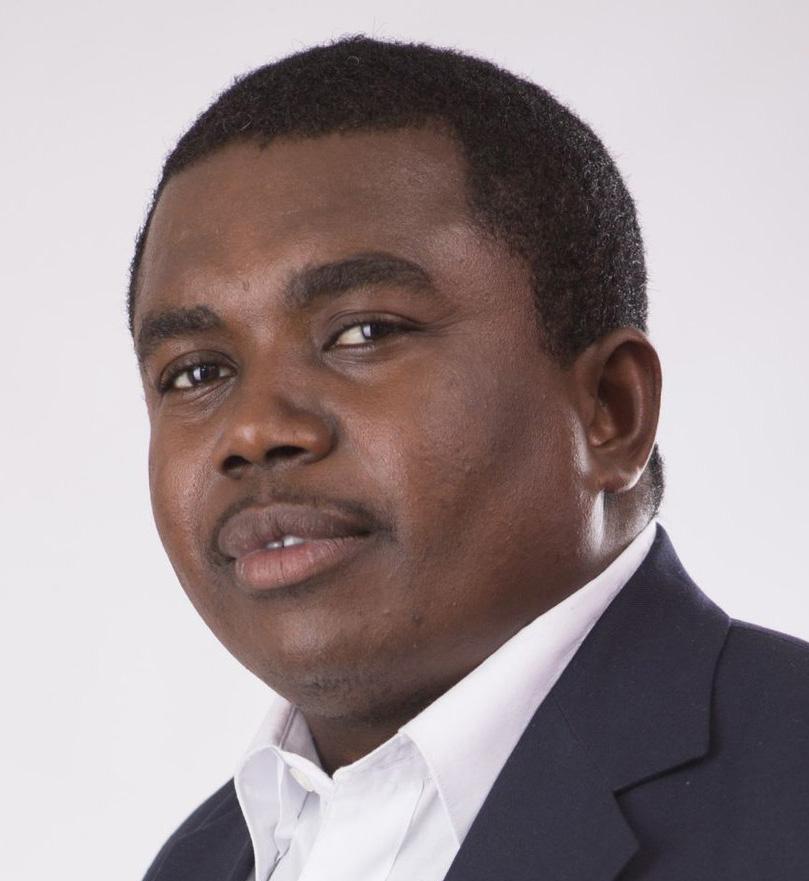
Port-au-Prince - Less than 48 hours after he was prevented from boarding a flight to the United States, lawyer André Michel has announced his candidature for the presidential election in Haiti.
“I am announcing my presidential ambitions for the upcoming election. I will present a political platform focused on security, economic and social development, and national sovereignty,” Michael said on his X account, formerly Twitter.
“The elimination of armed gangs is my top priority. We must not dwell on the gang!,” he wrote.
Political observers are questioning the sincerity in Michel’s announcement, saying that it was made to deflect attention from the humiliation he experienced at the Cap-Haïtien airport on Saturday when he was barred from boarding a Sunrise Airways flight to Florida.
While no official explanation has been made regarding the decision of the airline to prevent him from boarding the flight, media reports here suggest that he may be on a blacklist that includes both former and current Haitian officials, political figures, and influential members of the business sector whose US visas have been revoked.
Michel rose to prominence on the national political scene during the 2011–2021 period, when he played a central role in several high-profile legal cases involving government officials and was one of those against the administrations of Michel Martelly and Jovenel Moïse.
He was also a member of Ariel Henry’s transitional government, becoming one of its most vocal defenders.
Haiti has been without an elected head of state after President Moise was shot and killed at his private residence on July 7, 2021. His wife was also injured during the attack and several Colombian nationals have been arrested in connection with the killing, but have not been officially charged as yet.
Since the death of Moise, criminal gangs have sought to overthrow the interim governments, and they have all but control the capital, forcing people to flee their homes.
The United Nations has said that the gangs are responsible for the deaths of thousands of
people in Haiti.
The Haitian-based media organization, SOS Journalists, is urging the authorities here to hold a constitutional referendum ahead of plans to hold elections in Haiti by November this year.
It said that a constitutional referendum is essential in the country where power is expected to be transferred in February 2026 to a judge of the Court of Cassation.
Last Friday saw the official launch of the ‘Chair of Law and Administration of Electoral Operations in Haiti’ which is an initiative of the State University of Haiti and the Provisional Electoral Council.
The two institutions signed a partnership agreement that aims to strengthen training and research in the management of electoral processes in the country. The project is also intended to train executives in electoral professions and strengthen institutional capacity in the country. (CMC)
In a historic move marking a significant shift in Grenada’s constitutional landscape, Governor General Dame Cécile La Grenade has granted assent to two landmark pieces of legislation that formally end the requirement for State officials to swear allegiance to the British monarch.
The Constitution (Oath of Allegiance) (Amendment) Act, 2025 and its companion bill were passed by Parliament and officially took effect on August 1, 2025. The laws mandate that all relevant public officials retake their oath—this time pledging allegiance to the State of Grenada—within 12 hours of the law’s enactment or no later than seven days following the appointed date.
Public notice of the Governor General’s assent was issued via the official Gazette, with printed copies of the legislation made available at key government institutions, including the Treasury, post offices, public libraries, police stations, and District Revenue offices.
While the bills represent a long-anticipated goal of nationalists and constitutional reform advocates, they have also triggered concern among civic groups. The Independent Caucus for Constitution Reform, a non-governmental watchdog, formally appealed to the Governor General to withhold assent, arguing that the legislation undermines constitutional integrity. In a letter dated July 27, the group wrote: “We respectfully urge you to withhold assent from these bills in their present form, whose provisions contradict the foundational constructs of our Constitution. Section 45 entrusts you with this responsibility not merely as a ceremonial functionary, but as a constitutional safeguard in the service of democratic integrity.”
The letter went on to express alarm over what it described as the erosion of institutional checks and balances:
“Our objection is not symbolic—it reflects a profound apprehension about the erosion of legal checks and balances and the potential for
democratic capture. We implore Your Excellency to exercise your constitutional directives to preserve the Constitution of Grenada and protect the legitimacy and independence of the Governor General’s Office.”
The amendments are the result of sustained efforts by the Citizens for Constitution Reform, a civil society coalition led by former Attorney General and constitutional law expert Dr. Francis Alexis. The organization made clear during its May 2024 media launch that its chief priority was to revise the Oath of Allegiance to reflect a modern, sovereign identity.
“There should no longer be allegiance to His Majesty King Charles III, his heirs and successors,” Dr. Alexis stated, “but instead to the land of our birth—our citizenship and homeland, Grenada.”
Dr. Alexis, who chaired Grenada’s previous constitutional reform committees during the 2016 and 2018 referendum campaigns, framed the change as a long-overdue realignment of the nation’s democratic values and post-colonial identity.
The enactment of these amendments reflects a growing trend across the Caribbean toward asserting republican values and distancing state institutions from symbols of colonial heritage. While the reforms stop short of transitioning to a republic—an option previously rejected in public referenda—the revised oath marks a symbolic and substantive departure from Grenada’s monarchical ties.
Whether this move will reignite momentum for broader constitutional reform remains to be seen. However, it undeniably signals a deepening of the national conversation around sovereignty, democratic accountability, and post-independence identity.






Dominican Prime Minister Roosevelt Skerrit says his administration is willing to have public consultations on the possibility of allowing Palestinians to settle in the country.
Skerrit made the statement in his contribution to the budget debate in Parliament on Thursday.
“I believe that we will be open to engaging the governments of Qatar and Saudi Arabia with the view to quite possibly allowing the resettlement of a couple of hundred Palestinians in Dominica.”
“You have very talented people in these countries, doctors and engineers who we believe can assist us in our efforts in growing the economy and filling the gaps…” Skerrit said.
His proposal comes in the wake of several
countries stating that they are willing to press for Palestinian statehood at the upcoming United Nations General Assembly.
On Wednesday, Canadian Prime Minister Mark Carney, announced his country’s plans to formally recognize Palestine last week. France and 14 other countries cosigned a declaration that pointed towards a wave of future recognitions of an independent Palestinian state.
Carney’s remarks were made amid growing pressure on Israel to end its military campaign in the Gaza Strip, which began on October 7, 2023, in response to the massacre of over one thousand Israelis by the terror group Hamas.
Israel has vowed to continue fighting until Hamas is eliminated. (CMC)
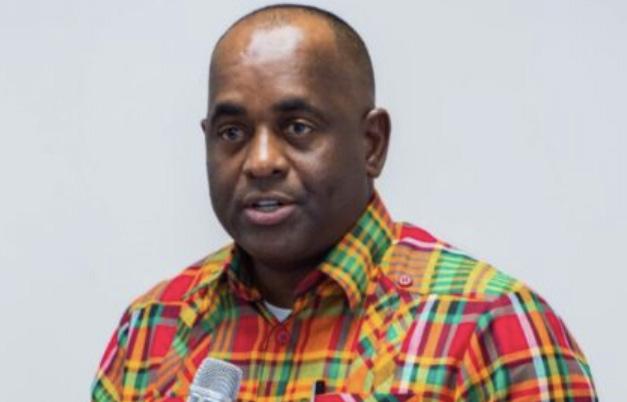
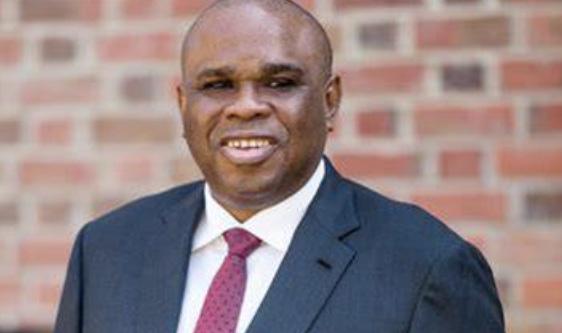
Community (CARICOM) to establish a regional import-export bank — a bold step toward deepening Africa-Caribbean economic cooperation. Among the proposals under consideration is the possibility of refining Guyana’s oil in Africa, signaling a potential shift in the global energy value chain.
The announcement was made at the 4th Annual Afri-Caribbean Trade and Investment Forum (ACTIF), which opened yesterday in Grenada under the theme: “Resilience and Transformation: Enhancing Africa-Caribbean Economic Cooperation in an Era of Global Uncertainty.”
The high-profile event drew an audience of over 1,800 delegates, including Heads of State and Government representatives from CARICOM and Africa, UN Deputy Secretary-General Amina Mohammed, and a delegation of 20 private-sector leaders from Guyana.
Addressing the forum, outgoing Afreximbank President Dr. Benedict Oramah emphasized the urgent need for self-sus-
taining regional financial institutions.
“In an era of declining development assistance flows to our countries, coupled with the exit of international banks, and the imperative to build our economies using our own resources and institutions, we must develop institutions capable of financing our development,” Dr. Oramah stated.
The concept of refining Guyana’s oil in Africa, if realized, would mark a significant development in South-South cooperation and could open new avenues for economic integration between Africa and the Caribbean. It also underscores the growing importance of Guyana’s emerging oil industry on the global stage.
The proposed CARICOM-African EXIM Bank would aim to provide financing for trade, infrastructure, and industrial development across both regions — enhancing economic resilience amid shifting global financial dynamics.










In a bold call for dietary reform, former Prime Minister Dr. Hubert Minnis has proposed legislation to prohibit international fast food chains from operating in the Bahamas’ outlying Family Islands, citing the nation’s mounting health crisis fueled by poor nutrition and lifestyle-related diseases.
Speaking during a parliamentary debate on a suite of healthcare reform bills, Minnis warned that skyrocketing obesity rates, particularly among youth, threaten the well-being of future generations. He attributed the alarming trends to the widespread availability of processed and high-fat foods, along with the increasing dominance of fast food outlets in urban centers.
“We have an obesity crisis, and it is increasingly affecting our young people,” said Minnis. “Our diets are saturated with refined carbohydrates, processed foods, and excessive fats, while lacking fruits and vegetables. The proliferation of fast food restaurants is worsening this national epidemic.”
Minnis, a trained physician, argued that while cities like Nassau and Grand
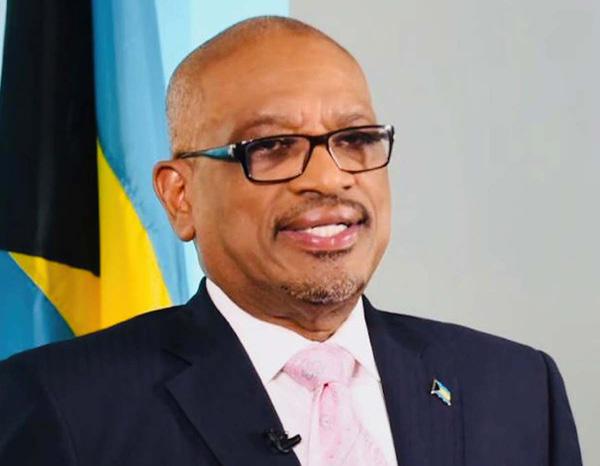
Bahama are already saturated with foreign fast food franchises, the Family Islands
— prized for their natural beauty and traditional lifestyle — should be protected from similar influences.
“Nassau is contaminated already. Grand Bahama is contaminated,” he stated. “Let us preserve the Family Islands. If people want food, let it come from our own Bahamian restaurants. Keep the McDonald’s and Burger Kings that made us
overweight out.”
He criticized the frequency of fast food consumption, noting that some residents rely on such meals two to three times daily, contributing to widespread cases of high blood pressure, high cholesterol, and obesity — conditions he said have become the norm across Bahamian society.
“We are an increasingly unwell people. We are addicted to foods that make us sick,” Minnis said bluntly. While no draft legislation has been tabled, Minnis’ remarks have reignited national debate over the role of imported fast food in public health and the responsibility of policymakers to protect vulnerable communities. His comments also highlight growing calls for the Bahamas to prioritize locally sourced, nutrient-rich diets and invest in longterm wellness strategies.
If adopted, such a policy would mark a significant shift in the country’s approach to food regulation, economic development in rural areas, and preventive healthcare.

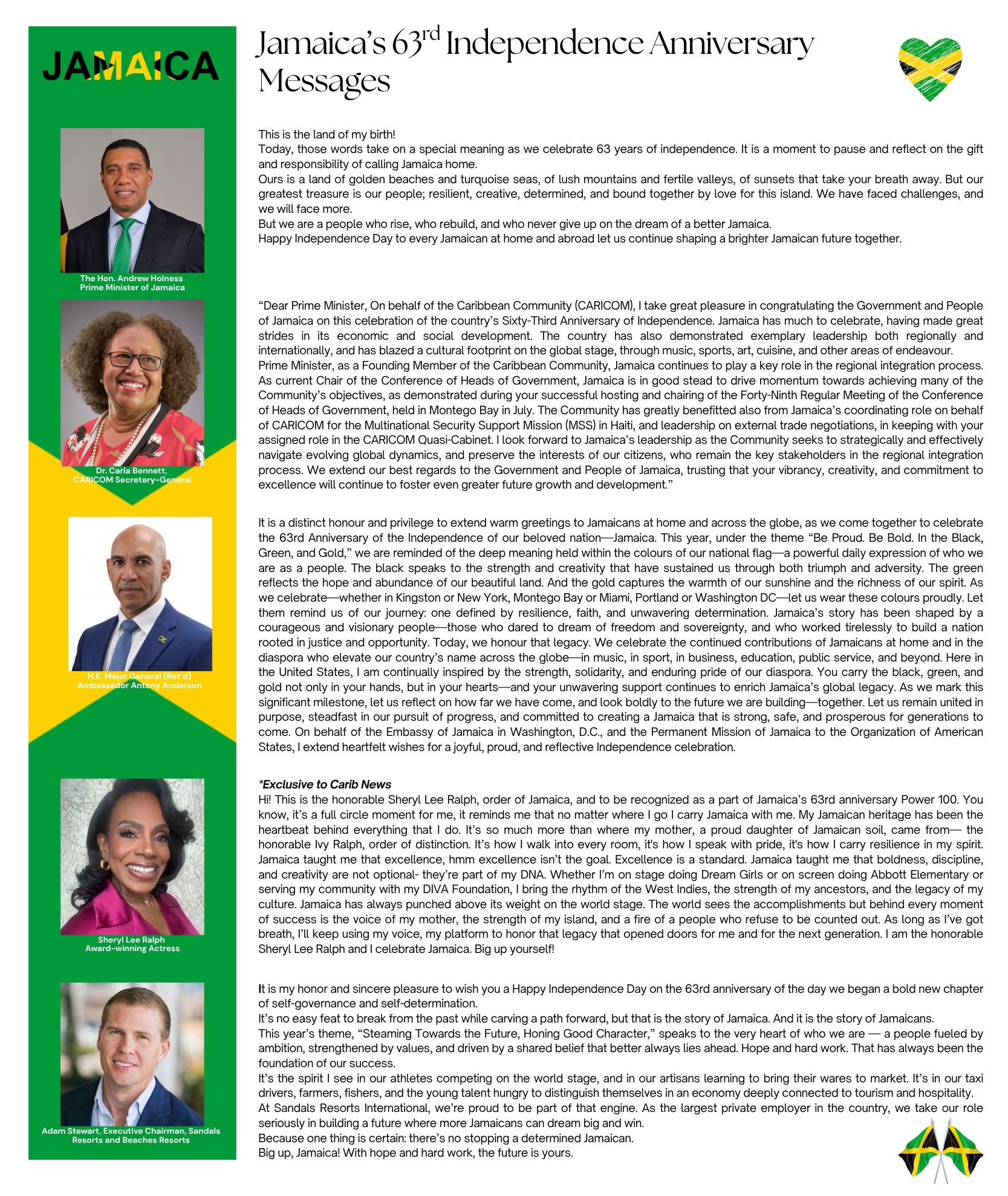
Public hearings will be held on proposed changes in fares virtually via Zoom and in person at the locations, dates and times noted below. The public is invited to comment on the proposed changes, which are summarized below and pertain, as applicable, to the fares of the New York City Transit (NYCT) and its subsidiary, the Manhattan and Bronx Surface Transit Operating Authority (MaBSTOA), the MTA Bus Company (MTA Bus), and the Staten Island Rapid Transit Operating Authority (SIR); Long Island Rail Road (LIRR); and Metro-North Railroad (Metro-North).
The fare proposals allow for a range of options to be considered and fare increases may be less than the maximum amounts specified. Following the hearings, after considering public comment, the Board of the MTA and its affiliated and subsidiary agencies will determine the fare changes to adopt.
For more details on the proposed changes, please visit http://mta.info/2025-fare-hearings, consult information posted at MTA stations and on digital display boards, or call the Public Hearing Hotline at (646) 252-6777.
The following proposed changes may be implemented in or after January 2026.
NYCT, MaBSTOA, MTA Bus, SIR
Fares for Subway (NYCT), Local Bus (NYCT, MaBSTOA, and MTA Bus), and SIR:
Base Fare (currently $2.90):
• Increase the base fare by 10¢.
Single Ride Ticket (currently $3.25):
• Increase Single Ride Ticket on non-reusable ticket stock by 25¢.
Fare Cap and Unlimited Rides:
• Make permanent a 7-Day Rolling Fare Cap that entitles a rider to an unlimited number of free trips in a 7-day period after the rider has paid for 12 trips in a 7-day period.
• Increase the 7-Day Rolling Fare Cap to 12 times the Base Fare, to $36.00.
Fares for Express Bus (NYCT and MTA Bus):
Single Ride (currently $7.00):
• Increase the single ride Express Bus fare to $7.25.
Fares for Paratransit Services (currently $2.90):
Increase the NYCT Access-A-Ride Paratransit Service one-way fare by up to the amount of the increase, if any, of the Subway Base Fare.
MetroCard Fare Media:
No longer sell MetroCard fare media. This fare media includes the prepaid 7-Day, 30-Day, and 7-Day Express Bus Plus Unlimited Ride MetroCards.
Discount Policies:
Seniors/Customers with disabilities/Paratransit Zero Fare discount policies remain unchanged.
LIRR and Metro-North
Monthly, Weekly, and Other Ticket Types:
• Increase the Monthly and Weekly ticket price up to 4.5%.
• Increase the price for all other tickets up to 8%.
• Special discounted fares, supplemental step-up on-board fares, and ride extension fares may be subject to percentage increases higher than the otherwise maximum authorized increases to base fares due to rounding.
UniTicket and One-Way Connecting Fares:
• Increase weekly connecting fares for Hudson Rail Link by 50¢.
• Increase monthly connecting fares for Hudson Rail Link by $2.00 and for HaverstrawOssining Ferry by 75¢.
• Increase one-way fares for the Hudson Rail Link by 10¢, one-way connecting fares for the Haverstraw-Ossining Ferry by 25¢, and increase Seniors/Customers with Disabilities fares for these trips by 5¢.
• Increase weekly fare for connecting local NYC bus service (NYCT, MaBSTOA and MTA Bus) by 75¢ and monthly fare by up to $4.25.
• Increase weekly fare for Nassau Inter-County Express (NICE) Bus UniTicket by 75¢ and monthly fare by up to $5.25.
Other Fare and Policy Proposals:
• Increase the surcharge by $2 on all tickets purchased on board trains.
• Make the Peak CityTicket and Far Rockaway Ticket permanent fare products.
The following proposed changes may be implemented once the MetroCard is no longer accepted for fare payment.
Fares for Subway (NYCT), Local Bus (NYCT, MaBSTOA, and MTA Bus), and SIR:
On-Board Local Bus Fare:
Continue to accept cash at card vending machines and OMNY retailers, and end acceptance of bus on board fare payment by coin for single ride Local Bus fare.
OMNY Card Fee:
Increase the fee for a new OMNY Card up to $2.00.
Dates and Times of Hybrid Public Hearings
There will be three (3) hybrid Public Hearings to provide information and receive comments on the proposed changes to MTA fares at the dates and times below. Those interested in speaking will have two (2) minutes to speak.
Tuesday, August 19, 2025, 6 p.m. – 9 p.m.
Wednesday, August 20, 2025, 10 a.m. – 1 p.m.
Wednesday, August 20, 2025, 5 p.m. – 8 p.m.
Location of the Hearings
All public hearings will be held in-person at New York City Transit Authority, 130 Livingston Street, 1st Floor, Brooklyn, NY 11201 and via Zoom and livestreamed at http://mta.info/2025-fare-hearings.
Subway: ACFR to Jay Street – MetroTech (accessible station), R to Court Street (accessible station), 23 to Borough Hall (accessible station), 45 to Borough Hall (accessible on Manhattan-bound only)
Bus: B25, B26, B38, B41, B45, B52, B57, B61, B62, B65, B67, B103
Registering for the Public Hearings
To register to speak at the hybrid public hearings, please register online at http://mta.info/2025-fare-hearings or call the Public Hearing Hotline at (646) 252-6777. Telephone agents are available from 6 a.m. to 10 p.m. daily. Registration for each public hearing will open on Wednesday, July 30, 2025 and will close at the start of the hearing. All comments will be transcribed and made part of the permanent record.
You must pre-register to speak at a hybrid public hearing. Oral comments are limited to two (2) minutes for each speaker. Hearings are scheduled for three (3) hours, but for each public hearing, registrants will be accepted up to 240 minutes (4 hours) of scheduled public speakers. If there are registered speakers remaining after the hearing reaches 240 minutes of public speaker comments, only the remaining registered speakers who have not previously spoken at another 2025 fare public hearing will be given the opportunity to speak. In addition, at all hearings, speakers who have not previously spoken at another 2025 fare public hearing will be given priority in speaking order.
Joining the Public Hearings Virtually
If you are registered to speak and joining the public hearings virtually, you may join the Zoom meeting at the scheduled hearing time either online or by phone following these instructions:
Join Zoom Online: To access the Zoom meeting online, visit the website: http://mta.info/2025-fare-hearings. You can also enter the URL zoom.us/join and enter the Meeting ID 830 8013 3172.
Join Zoom by Phone: To access the Zoom meeting by phone, please call (646) 518-9805. Then enter Meeting ID 830 8013 3172 followed by the pound (#) sign.
View-Only Online: Members of the public who wish only to view the hearings may access the event live at http://mta.info/2025-fare-hearings.
To submit questions during the hearings, you must join the hearing through the Zoom online platform. You may submit questions at any other time in the ways listed below (see “Additional Ways to Comment or Request Information”). Questions about the proposed fare changes may be responded to by staff during or after the hearing.
Additional Ways to Comment or Request Information
Online: http://mta.info/2025-fare-hearings
Mail: MTA Government & Community Relations, Attn: Fare Hearings, 2 Broadway, 16th Floor, New York, NY 10004
Phone: (646) 252-6777, telephone agents are available from 6 a.m. to 10 p.m. daily
Additional testimony will be taken at Customer Service Centers, mobile sales vehicles, and other locations around the transit system. Visit http://mta.info/2025-fare-hearings for more information.
Accessibility and Language Assistance Services
American Sign Language and CART Captioning Services will be available.
Members of the public who are Deaf or Hard of Hearing can use their preferred relay service or the free 711 relay service and ask to be connected to the Public Hearing Hotline at (646) 252-6777 to speak with an agent.
Members of the public who are Blind or have Low Vision can request accommodations at least five (5) business days before the first scheduled hearing date by submitting a request online at http://mta.info/2025-fare-hearings or by calling the Public Hearing Hotline at (646) 252-6777.
If language assistance or any other accommodations are required, please submit a request at least five (5) business days before the scheduled hearing date in one of the following ways: online at http://mta.info/2025-fare-hearings, by calling the Public Hearing Hotline at (646) 252-6777, or by sending a letter to MTA Government & Community Relations, Attn: Fare Hearings, 2 Broadway, 16th Floor, New York, NY 10004.
For those who request language assistance, the MTA will provide translated information about the hearing process and ensure that any public comments received in a language other than English are translated, included in the hearing transcript, and summarized for the MTA Board.
Members of the public who do not have access to a computer or who do not have access to the Internet can listen to each of the hearings by calling the Zoom meeting at (646) 5189805 (toll-free). Then enter Meeting ID 830 8013 3172, followed by the pound (#) sign.


Brand Jamaica is a global force. From Kingston to Kyoto, reggae rhythms thump through speakers, carrying messages that inspire and unite. On the track, on the field, and on the world stage, our athletes stand as giants — a remarkable feat for a nation of just under three million.
And the flavor? Unmistakable. From Michelin-starred restaurants to roadside food trucks, “jerk everything” has gone international, cementing our place in the culinary hall of fame.
This week, as Jamaicans celebrate independence, they do so with a complex reality: the Union Jack still flies in the nation’s constitutional framework, even as the economy shows signs of progress. Debt has eased, poverty has ticked down — yet both remain stubbornly high. The challenges are real. Beyond the annual battering from hurricanes and the looming threat of climate change, Jamaica grapples with corruption, bribery, gang violence, and an economy still too dependent on tourism — a sector vulnerable to every global economic tremor.
And yet, resilience is in our DNA. In 63 years of independence, Jamaica has navigated political storms with a democratic process that delivers peaceful transfers of power. Through adversity, we’ve carved out progress, step by determined step.
So, yes — Jamaicans celebrate this
milestone with pride, with grit, and with a clear-eyed determination to shape our own destiny.
This year’s Carib News “Power 100” honorees stand as a testament to the impact of Jamaicans and JamaicanAmericans across the globe. From corporate boardrooms to Broadway stages, from scientific laboratories to Olympic stadiums, they are not just achieving personal success — they are carrying Brand Jamaica into every corner of the world.
The significance of the Jamaican diaspora cannot be overstated. Jamaican people have a way of excelling wherever they are planted, and in doing so, they bring pride and visibility to the nation. This isn’t just about fame — it’s about influence, leadership, and the ability to inspire others. Whether through music, sports, the arts, activism, education, or politics, Jamaicans abroad have long embodied the principle that “out of many, one people” is more than a motto — it’s a mission.
The Power 100 list doesn’t merely celebrate individuals; it reflects a network of accomplishment that feeds back into Jamaica itself. These are our global ambassadors — people who, in their chosen fields, open doors, challenge stereotypes, and create pathways for others to follow.
In many ways, the Power 100 is the living embodiment of Marcus Garvey’s
message: “Up, you mighty race, accomplish what you will.” Garvey, Jamaica’s first national hero, urged people of African descent worldwide to stand tall, be self-reliant, and work collectively for progress. That spirit is alive in the Jamaican diaspora, which has proven time and again that distance does not diminish identity.
From legendary figures like Harry Belafonte, who used his platform not only to entertain but to champion civil rights and humanitarian causes, to today’s changemakers who fight for equality, justice, and opportunity, Jamaicans abroad continue to extend the nation’s influence well beyond its borders. They are living proof of the power of heritage, culture, and determination to inspire real-world change.
The story of Jamaica’s growth is not written by those at home alone. It is a shared narrative — a partnership between those who walk the streets of Kingston and those who stride the corridors of power in New York, London, Toronto, and beyond. Remittances, investments, charitable projects, cultural exchanges — all of these flow from the diaspora back to the island, strengthening the foundation for a brighter future.
In sports, we see this partnership in the global recognition of Jamaican talent, from Usain Bolt electrifying the track to Shelly-Ann Fraser-Pryce inspiring young women worldwide. In music, it is
in the universal embrace of reggae and dancehall, genres that carry Jamaica’s heartbeat into every city. In academia and business, Jamaican excellence shapes policies, drives innovation, and elevates communities.
The Jamaican people — at home and abroad — possess a rare combination of creativity, resilience, and joy. We have an uncanny ability to meet hardship with humor, to transform challenges into opportunities, and to turn our culture into a currency that is both valued and in demand around the globe.
We are dreamers and doers. We know how to hustle, how to innovate, and how to lift each other up. We do not shrink from the world — we stride into it, leaving an unmistakable imprint.
As we mark 63 years of independence, Jamaica stands at a crossroads — proud of what has been achieved, aware of what remains to be done, and confident in the capacity of its people to lead the way forward.
Carib News salutes the Power 100, the countless unsung heroes, and every Jamaican whose work, words, and willpower carry our country’s name with honor. Together — at home and abroad — we form one Jamaica, committed to progress, united in pride, and ready for the next chapter in our shared story.

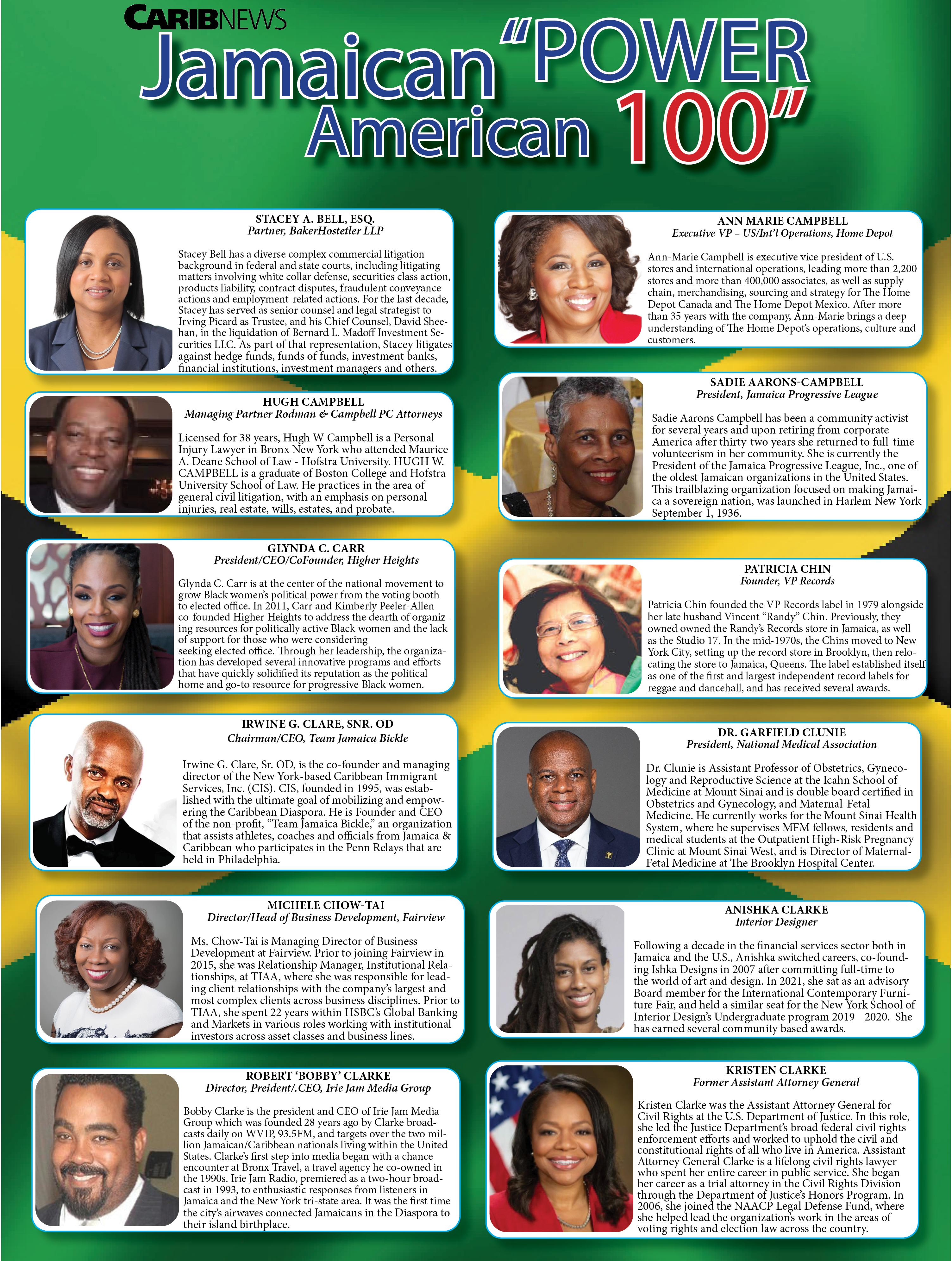


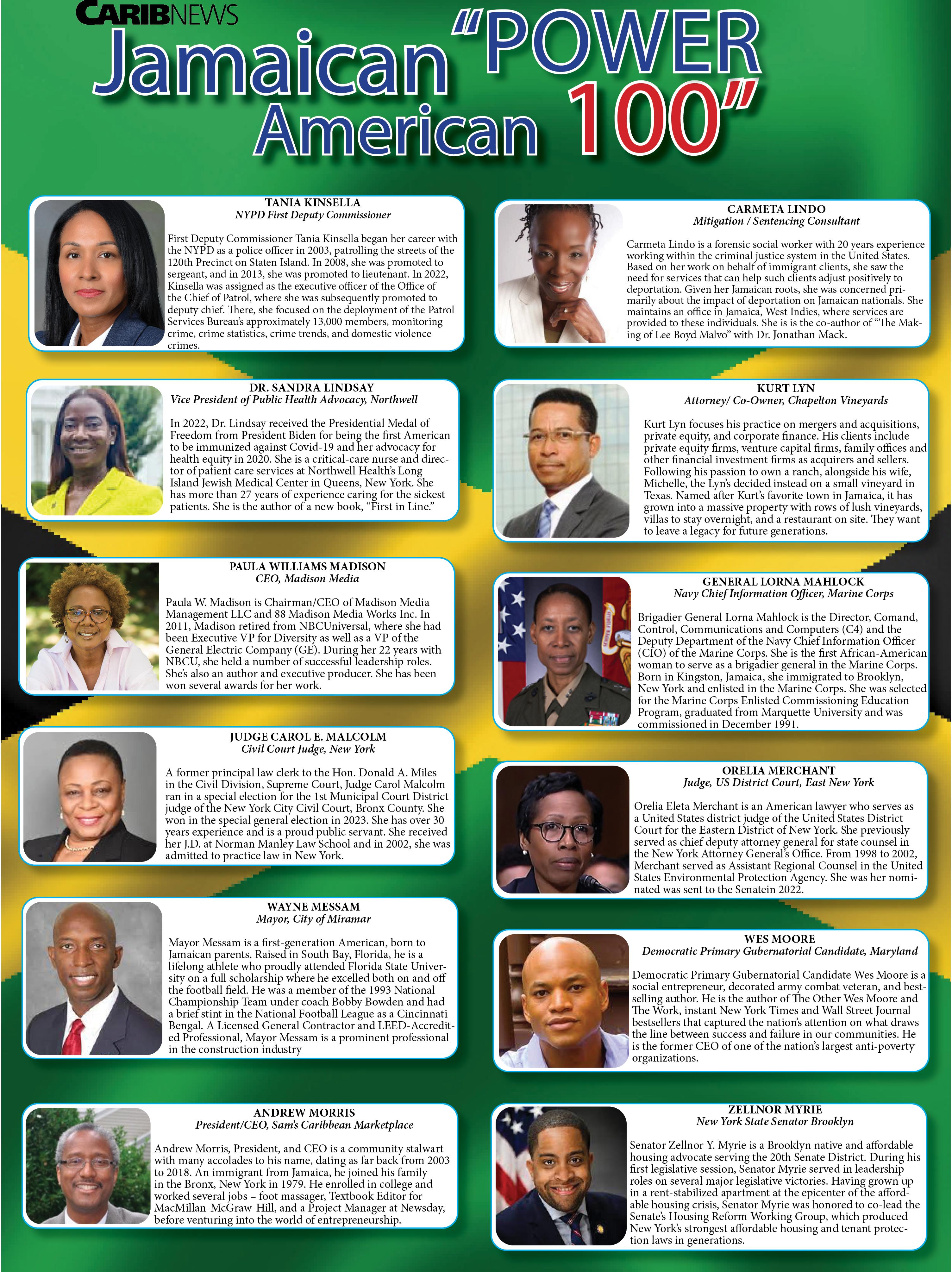
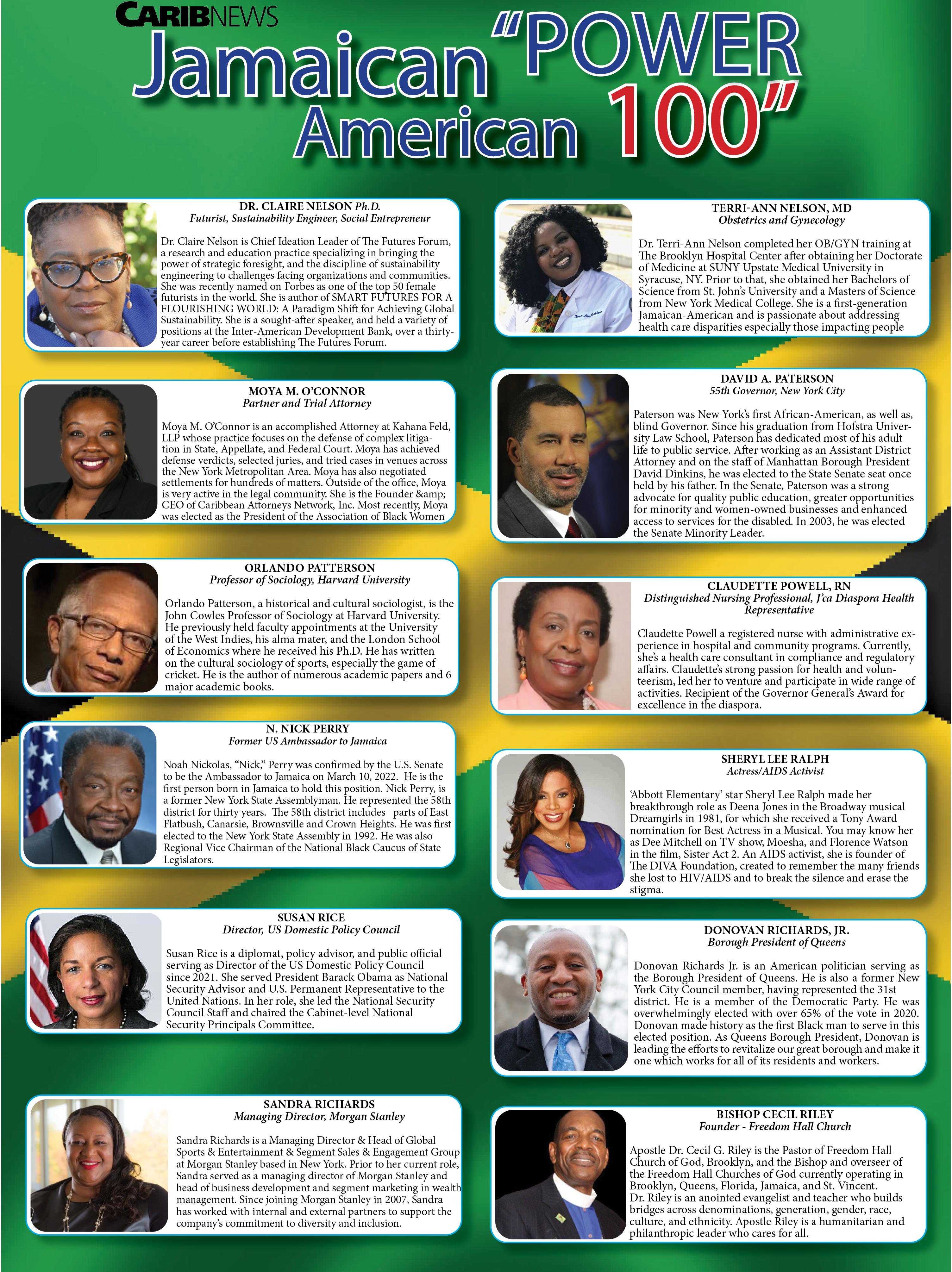

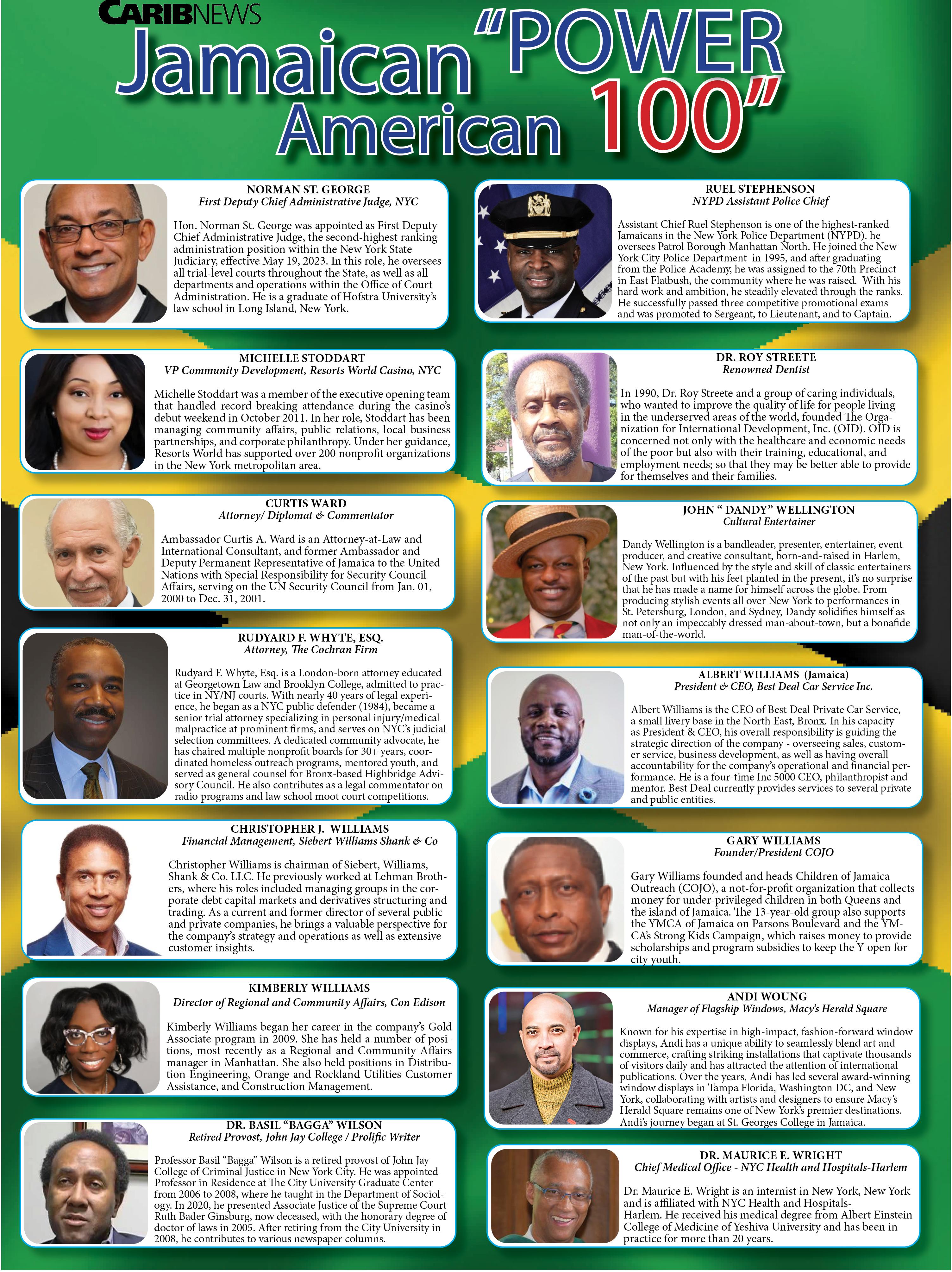


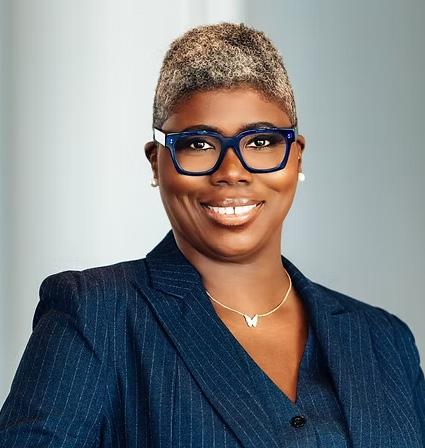
Nichol King still remembers the nervous excitement of her first day at JPMorgan Chase’s Harlem branch in 2008. Little did she know she’d eventually revolutionize how America’s largest bank serves urban communities. A deep instinct for bridging divides has defined Nichol’s remarkable ascent. From Licensed Personal Banker to architect of Chase’s national community banking model, her career reads like a playbook for inclusive finance. Her crowning achievement? Creating 150 specialized Community Man-
ager roles across the country and redesigning branches as neighborhood financial hubs. “Traditional banking waited for customers to come inside,” she explains. “We flipped the script - meeting people where they live with tools for real economic mobility.”
The Congressional honor of “Nichol King Day” (declared annually since 2016) barely scratches the surface of her impact. Whether testifying at financial literacy panels or advising the New York Urban League, she’s become the go-to strategist for equitable growth. “Bankability isn’t just about accounts - it’s about unlocking potential,” says the executive who still mentors tellers at her original 125th Street location.
When asked about her Jamaican roots, Nichol credits them with shaping her approach. “Island culture teaches you to see resources everywhere,” reflects the leader who turned local branch managers into financial coaches. “Every dollar circulating in a community should strengthen that community.”
In an industry often criticized for inequality, Nichol proves banks can be engines of empowerment. Her model has helped thousands of small businesses scale while training a new generation of culturally-aware bankers. As one colleague puts it: “She didn’t just climb the laddershe rebuilt it so others could follow.”
In conversation with Carib News she shared the following in honor of the Jamaica Power 100:
CN: What characteristics would you contribute to your success?
NK: I believe that several key characteristics have contributed to my success. First and foremost, having an open mind and always being curious has been crucial. This mindset has allowed me to explore new ideas and adapt to the ever-changing landscape of the financial industry. Curiosity drives innovation which is essential in my role and the communities that I have the opportunity to support.
CN: Did your Caribbean/Jamaican Heritage play a role in your success?
NK: Yes, my Jamaican heritage has been instrumental in my journey. Through my heritage, I was taught the value of hard work and the importance of being proud of my culture. Embracing my authentic self and honoring a “lift as you climb” mentality have been guiding principles in my career. These values have not only shaped my personal identity but have also enriched my professional life, allowing me to further commit to enhancing my community’s economic well-being.
CN: What thoughts of wisdom you would offer to young persons aiming for success?
NK: To young individuals aiming for success, I would advise believing in yourself and building your confidence. It’s important to grow your network and not be afraid to put yourself out there. Be bold, be courageous, and invest in yourself. Embrace lifelong learning and be open to new experiences and challenges, as they are opportunities for growth. Lastly, stay true to your values and passions, as they will guide you in making meaningful contributions.
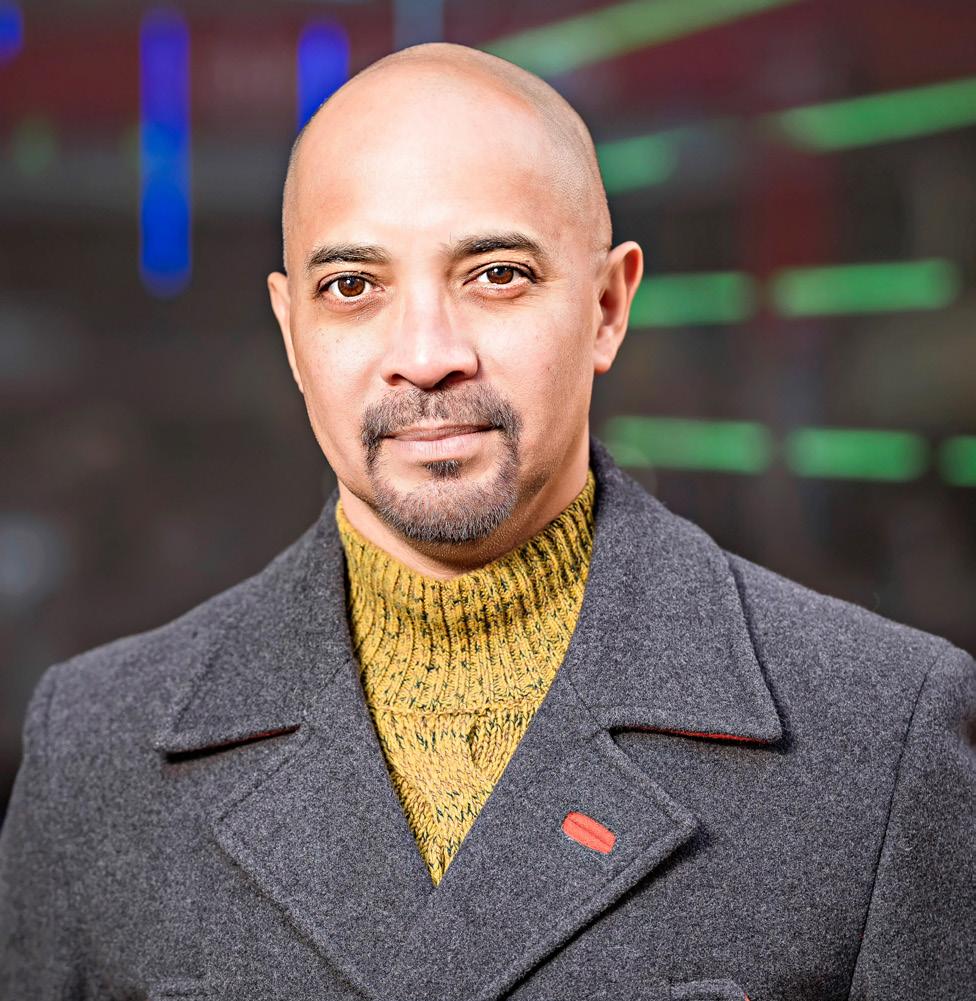
When Andi Woung first stepped into Macy’s flagship store years ago, he never imagined he’d become the creative force behind some of New York City’s most talked-about window displays. “I fell into this world completely by accident,” laughs the St. George’s College alum, recalling how a chance encounter with visual merchandising sparked his journey from Jamaica to transforming Macy’s iconic windows into must-see art installations.
Today, as Manager of Flagship Windows at Macy’s Herald Square, Andi has mastered the alchemy of blending
commerce with culture. “Our windows aren’t just selling products - they’re telling New York’s stories,” he explains, describing how his team’s work has garnered international attention while spotlighting emerging artists. That philosophy traces back to his Jamaican roots and art management studies at University of Tampa, where he learned “displays should elevate community voices, not just move merchandise.”
Some of his proudest moments? “When we give young designers their first big break,” says Andi, whose collaborations have turned Macy’s windows into career launchpads. Whether working with avant-garde fashion collectives or local students, he approaches each installation with the same meticulous care - a skill honed through award-winning displays in Tampa, DC, and now the world’s busiest shopping intersection.
Off the clock, you’ll find this horticulture-loving, globe-trotting creative experimenting in the kitchen with husband Milos or scouting tomorrow’s visual trends. “Jamaica taught me color is emotion,” reflects Andi. “Every window I create carries that vibrancy - it’s my love letter to both my homeland and my adopted city.”
In an era of online shopping, Andi’s work proves physical retail still has magic. His displays don’t just drive foot traffic - they stop pedestrians in their tracks, creating shared moments of wonder on 34th Street. As one colleague puts it: “Andi doesn’t decorate windows - he stages daily Broadway shows for the sidewalk crowd.”
Andi believes sharing art still has a future, which is why he works with a group of 5th graders in the community.
In conversation with Carib News he shared the following in honor of the Jamaica Power 100:
CN: How has your heritage or cultural identity influenced your journey and the work you do today?
AW: Herald square did not have decorated windows or Black History Month featuring Black artists, students, and people from the community embodying culture. Macy’s at the time did not celebrate Chinese heritage either. And used his knowledge and influence to force Lunar New year and Black History Month windows. It’s important to note that the Macy’s Day Parade is organized by immigrants.”
CN: What opportunities do you see for members of the Caribbean diaspora to collectively harness their power for global influence and change?
AW: As an artist, I feel like what I can affect, my little part with up and coming designers to show their work. With the challenging world, I still try to do my part to feature and collaborate artists—sharing a diverse viewpoint through multi-racial windows.
CN: What thoughts of wisdom you would offer to young persons aiming for success?
AW: To young Jamaicans - VOTE! Changes are only going to come when you exercise your speech. Stop voting the same families into office. Bring a more global view to their forefront.
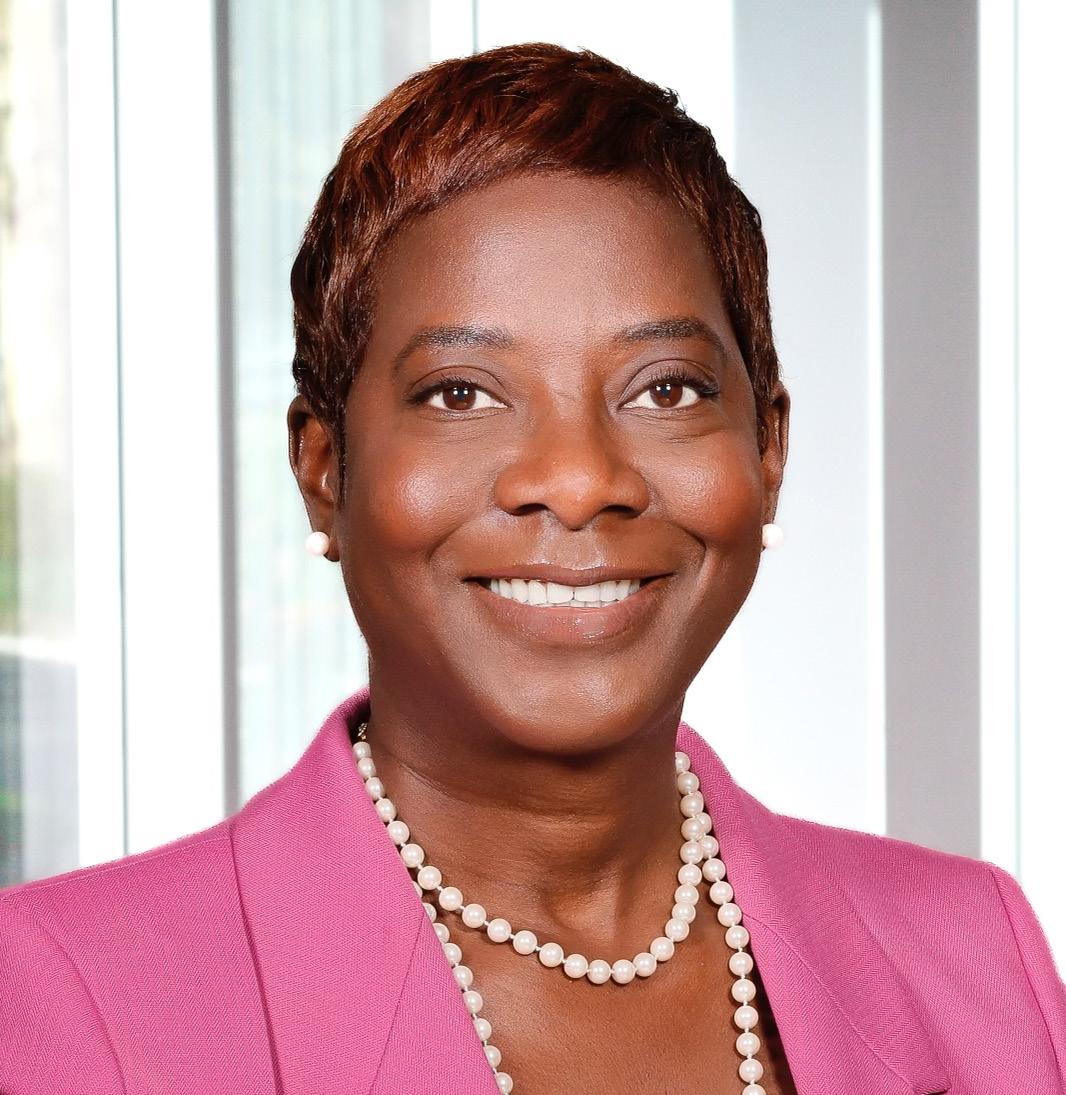
When Dr. Sandra Lindsay rolled up her sleeve in December 2020 to become America’s first COVID-19 vaccine recipient outside clinical trials, she didn’t just make medical history - she became an unlikely symbol of hope during our darkest days. “That moment was never about me,” reflects the humble critical care nurse who’s since transformed into a global health equity warrior. “It was about showing my community - especially people who looked like me - that science could save us.”
That selfless act sparked an extraordinary second act for the Jamaican-born healer. From
receiving the Presidential Medal of Freedom at the White House to advising UN leaders, Dr. Lindsay has become medicine’s most trusted voice against misinformation. “Every time someone tells me they got vaccinated because they saw my photo, I know we’re changing minds,” says the Carnegie Award honoree, whose New York Times-featured journey from supermarket cashier to nursing school graduate reads like an immigrant’s playbook for perseverance.
These days, the Sandra Lindsay Foundation continues her life’s work - most recently bringing menstrual equity to Jamaican schools. “I founded this in December 2024 to carry on the legacy of my parents and grandparents and also my legacy that I’m building. ,” says the author of “First in Line,” her memoir that reframes pandemic trauma as purpose. Whether meeting with Jamaica’s Prime Minister or New York schoolchildren, her message remains consistent:
“Health justice begins when we stop asking ‘why me?’ and start asking ‘who else needs help?’”
In an era of medical distrust, Dr. Lindsay proves one courageous act can ripple across continents. As one WHO official noted: “She didn’t just take a vaccine - she gave the world
permission to believe in science again.” In conversation with Carib News she shared the following in honor of the Jamaica Power 100:
CN: How has your heritage or cultural identity influenced your journey and the work you do today?
SL: “My Jamaican heritage is the foundation of everything that I do the values that I care with kindness compassion, hard work respect for self respect for others discipline and service were taught in my home, but they weren’t taught in my home. They were also out every single day. My home was open to anybody who needed a hot meal, or children who needed money to go to school or books. They would come home and my grandmother would support in anyway that she could. One of her favorite gifts was a bible. She wrote a personal message in it, and that meant something…that spirit of giving back has always stayed with me so today when I when I do work, whether it’s you know champion women’s health here or at home in Jamaica, champion menstrual equity or advocacy for anyone, I see as an extension of that legacy. I’m not just building my own path and my own legacy. I’m continuing theirs, and I hope that I’m making them proud. Thank you
to Jamaica for such a strong foundation!”
CN: What opportunities do you see for members of the Caribbean diaspora to collectively harness their power for global influence and change?
SL: “When I came here, I came here for the opportunities, but I also came here to contribute. I didn’t just come to take and not give back and I think that I have taken advantage of the opportunities, but I’ve also contributed greatly...find purpose through service. It’s a nice reminder that legacy isn’t just about spotlight, and after it’s gone, what do you do with that platform?”
CN: What thoughts of wisdom you would offer to young persons aiming for success? It’s easy to get caught up in success and recognition, but I think the real power is in staying grounded in your story, in your culture. Whatever you do, do it with intention. We all want to climb and we should, but don’t forget to reach back and remember the people who encouraged you, the people who saw something in you, who opened doors for you, and be that person to someone else.”
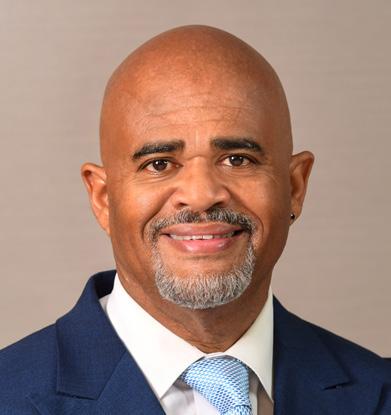
Born in Jamaica and raised in New York from age 10, Wayne Spence has risen to become one of America’s most influential labor leaders as the groundbreaking four-term President of New York’s Public Employees Federation. His historic tenure as both PEF’s first person of color and longest-serving president has been defined by transformative achievements including negotiating four consecutive contracts with across-the-board raises, spearheading the $1.1 billion rescue of Brooklyn’s SUNY Downstate Medical Center that saved 800+ union jobs, and implementing critical safety reforms like pregnancy protections for parole officers and mandatory metal detectors in state facilities.
Beyond his local impact, Spence wields national influence through leadership roles with the American Federation of Teachers as National Vice President, SEIU’s Racial Justice Committee, and the NYS AFL-CIO Executive Board. The Bronx High School of Science graduate and NYIT electrical engineer uniquely blends technical expertise with grassroots activism, having founded NYIT’s Caribbean Society before his 32-year career as a parole officer turned labor visionary. His remarkable journey from Kingston to labor’s highest echelons reflects both his Jamaican roots and New York hustle - a certified firearms instructor, Phi Beta Sigma fraternity leader, and devoted family man who continues to fight for working families while maintaining deep ties to his Caribbean community. As Cornell ILR Advisory Board member and architect of the largest public hospital rescue in recent New York history, Spence’s legacy proves that principled leadership can deliver both worker protections and vital public services.
In conversation with Carib News he shared the following in honor of the Jamaica Power 100:
CN: How has your heritage or cultural identity influenced your journey and the work you do today?
WS: I came to New York from George’s Plain in the parish of Westmoreland, Jamaica, in 1976 at the age of 10. I left behind Aunts and uncles who were proud, hard-working middle-class people who instilled in me a strong work ethic from an early age—washing the family cars on weekends, cutting the lawn with a manual push mower, and understanding the value of discipline and responsibility. Those early lessons helped me stand out among my peers in New York and shaped the foundation of who I am today. They helped me earn a spot at The Bronx HS Science, navigate college despite personal setbacks, and graduate with a BS degree in Electrical, Mechanical, and Computer Technology. Like many Jamaicans, I embraced the “three jobs” stereotype—working on and off campus while being a full-time student. That hustle, that drive, has never left me. It led me to public service and ultimately to becoming the first person of color and longest-serving President of the Public Employees Federation. My Jamaican heritage grounds my leadership—it’s where my grit, pride, and commitment to justice come from.
CN: What opportunities do you see for members of the Caribbean diaspora to collectively harness their power for global influence and change?
WS: The political climate in the United States has shifted in unsettling ways for many of us in the diaspora. It’s forced a reckoning, at least for me, about where and how we can truly thrive. I’ve even begun seriously considering returning to Jamaica to retire—or perhaps to start a new chapter of service. This “New America” has stripped away the comfort many of us once felt, but in doing so, it’s revealed new global opportunities. For the Caribbean diaspora, this is a moment to build economic and political power not just in our host countries, but across borders. Our influence is vast—we need collective vision and unity to leverage it.
CN: What thoughts of wisdom you would offer to young persons aiming for success?
WS: Don’t get too comfortable. Comfort can make you complacent. Stay grounded in where you come from, because your roots are your strength. Know your history, listen to your elders, and build for those coming behind you. Leadership is not about the spotlight—it’s about service, and the responsibility to lift as you climb.

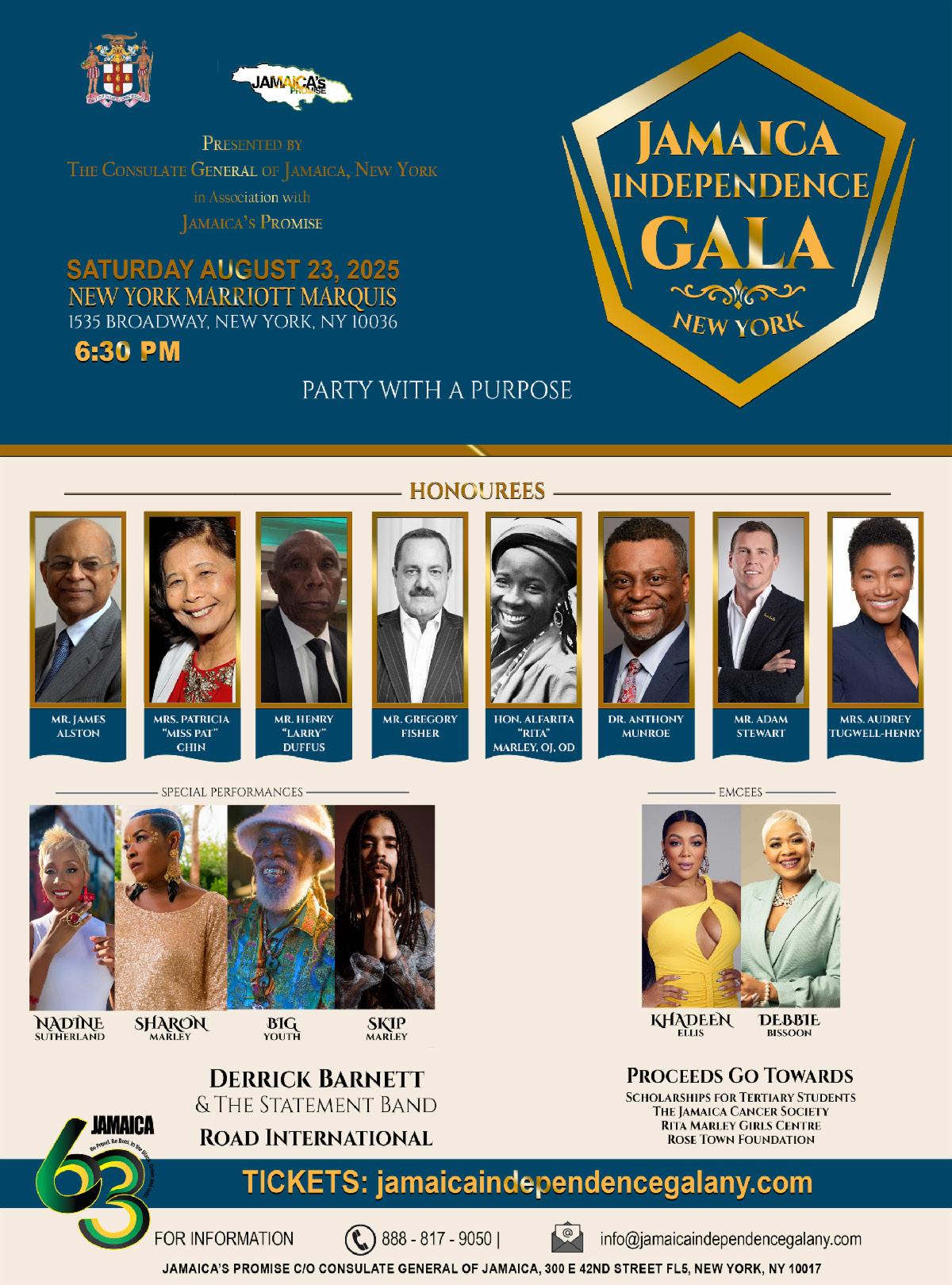



Thank you to the 2025 Great Immigrants honorees for making notable contributions to the progress of American society.
And congratulations to our very own:
SANDRA LINDSAY, DHSC, MBA, RN Vice President, Public Health Advocacy, Northwell
Margaret M. Crotty
Chair, Board of Trustees
Michael J. Dowling
President & CEO
NEW YORK – New York Attorney
General Letitia James today celebrated a major victory for students, families, and schools across the country as the U.S. Department of Education (ED) released nearly $7 billion in critical education funding that had been unlawfully frozen by the Trump administration. The reversal follows a lawsuit filed earlier this month by Attorney General James and 22 other attorneys general, as well as the governors of Pennsylvania and Kentucky, challenging
ED’s abrupt decision to halt this funding. Today, the New York State Education Department (NYSED) received notice that all previously frozen grant funding has been awarded and will be released.
“This is a huge win for our schools, our students, and the rule of law,” said Attorney General James. “When the administration abruptly froze billions in education funding, they jeopardized afterschool childcare programs, teacher support services, and vital classroom resources just
weeks before the new school year. Earlier this month, we took swift legal action, and today we are celebrating the results. I will always stand up to protect our students and New York State.”
“We are grateful that the federal government has fulfilled its commitment to the students of New York state by reinstating the grant funds that were previously withheld,” said NYSED Commissioner Betty A. Rosa. “These vital resources will empower both schools and districts to
provide critical supports and services to their students, educators, and school communities. We thank the Attorney General and our congressional delegation for their collaboration in advocating for the restoration of this funding. The State Education Department and Board of Regents remain committed to working with all levels of government to ensure every student receives the high-quality education they deserve.”
Join ImageNation OUTDOORS and Black Public Media (BPM) for an unforgettable evening under the stars at the Richard Rodgers Amphitheater in Marcus Garvey Park on Saturday, August 30, as part of the annual ImageNation OUTDOORS Film & Music Festival. This free community celebration features a live DJ set by SheJay Sheila P/Shift at 7 p.m. and the highly anticipated screening of The Disappearance of Miss Scott — a powerful new documentary by Nicole London that explores the life and legacy of the iconic entertainer Hazel Scott
— at 8 p.m. London will be in attendance for the Labor Day Weekend event. The riveting documentary uncovers the largely forgotten story of Hazel Scott — a prodigious jazz pianist, acclaimed Hollywood actress and fearless labor and civil rights pioneer. Born in Trinidad and raised in Harlem, Scott captivated audiences with her musical brilliance, shattered racial and gender barriers and became the first Black American woman to host her own nationally syndicated TV show. But Scott’s uncompromising activism against racism
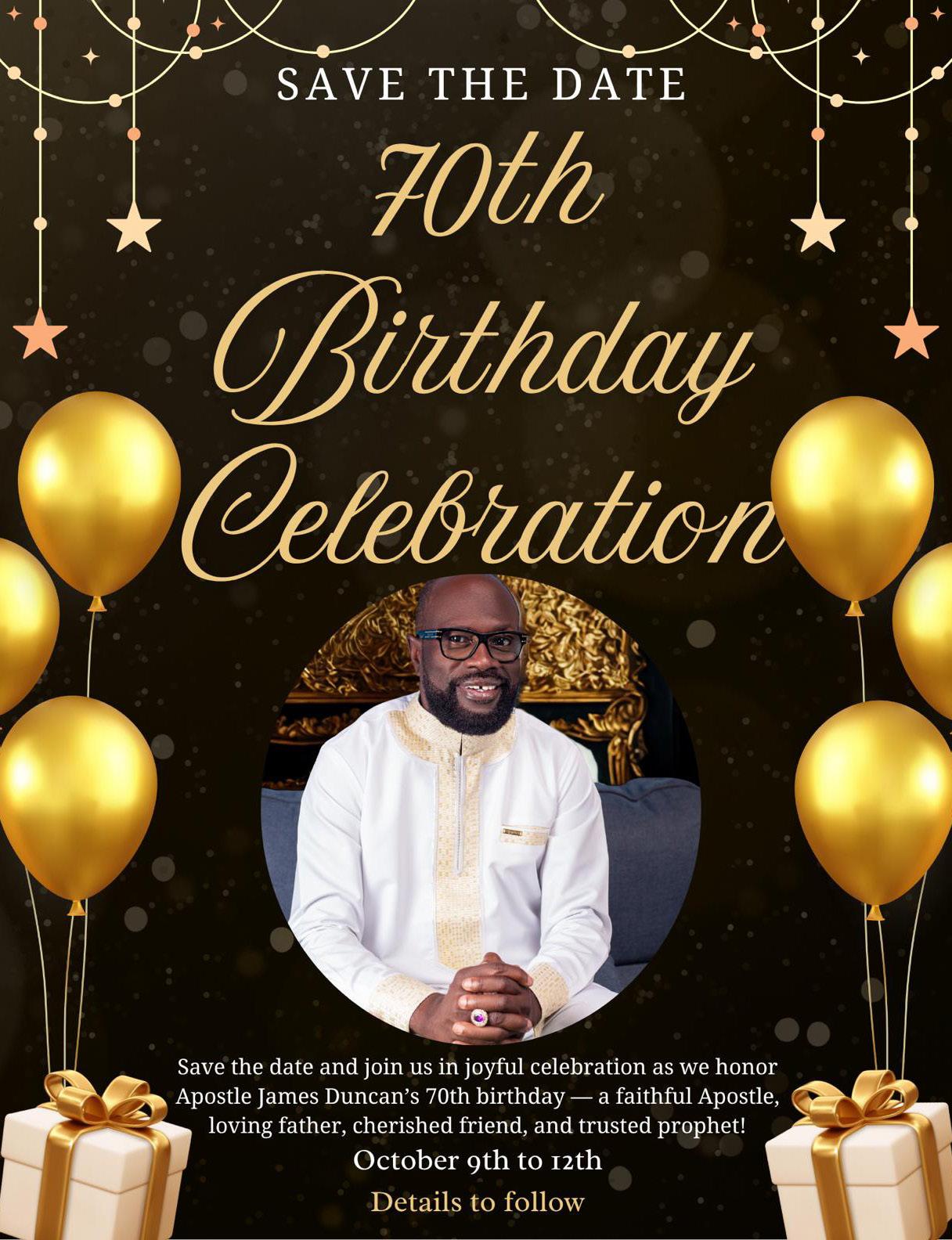
and political repression during the McCarthy era and her work on behalf of the fair treatment of Black actors came at a price. Her opponents blacklisted and ultimately erased her from mainstream culture. Through rare archival footage, intimate interviews and commentary from artists such as Mickey Guyton, Alicia Keys, Jason Moran, Amanda Seales, Tracie Thoms and Camille Thurman — and Sheryl Lee Ralph as the voice of Hazel Scott — this moving film resurrects Scott’s legacy, placing her back at the center of American cultural his-
tory where she belongs. (Link to the trailer: https://shorturl.at/U45r5)
Location: Richard Rodgers Amphitheater, Marcus Garvey Park, 18 Mount Morris Park West (at 122nd Street), Harlem
Date: Saturday, August 30, 2025
DJ Set: 7:00 PM by SheJay Sheila P/Shift Film Screening: 8:00 PM
Admission: FREE (Bring a blanket, lawn chair and good vibes)
RSVP Link: https://shorturl.at/X18cj

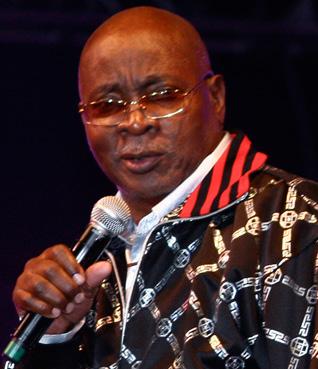
On July 26, the Southern Academy for the Performing Arts (SAPA) in San Fernando was transformed into a vibrant epicenter of music, culture, and reverence as Trinidad and Tobago—and the wider Caribbean—paid tribute to a towering figure in calypso: The Mighty Sparrow, Slinger Francisco ORTT. The occasion, titled Thank You, Sparrow, was a spectacular, star-studded homage to the legendary artist, who turned 90 on July 9.
Produced by Spektakula Promotions, the event celebrated the life and legacy of the “Calypso King of the World” with a musical journey through Sparrow’s unparalleled discography. A sold-out audience filled the concert hall, echoing with applause, laughter, and the unmistakable rhythms of calypso, as a multigenerational lineup of performers reimagined Sparrow’s classics with heartfelt flair.
A Journey Through Legacy
The evening opened on a triumphant note with 11-year-old Zachary Ransome, who delivered a spirited medley of Education, Capitalism Gone Mad, and Ten to One. With confidence and charisma well beyond his years, Ransome’s performance drew rousing applause and set a celebratory tone for the night.
Veteran calypsonian Luta followed, delivering evocative renditions of Slave, Saltfish, and Good Citizens, skillfully balancing sharp social commentary with humor. Pink Panther kept the energy high with theatrical and witty interpretations of Memories, Obeah Wedding, and No Money, No Love. The program flowed seamlessly, with

each artist adding their own voice to the Sparrow legacy. Oscar B lit up the room with crowd favorites Mr Walker and All Dem Tobago Gyul, while Sascha seduced the audience with a sultry take on El Reloj.
KV Charles brought soulful depth to Only a Fool Breaks His Own Heart and Mae Mae, capturing the emotional resonance of Sparrow’s ballads.
Devon Seales commanded the stage with spirited performances of Model Nation and Both Ah Dem, showcasing the lyrical sharpness and stagecraft that defined Sparrow’s political calypsos. Terri Lyons infused the night with playful energy in her renditions of Bang Bang Lulu and Jane, eliciting broad smiles and cheers from the audience.
The patriotic fervor surged as Chuck Gordon presented powerful interpretations of Federation, Lying Excuses, and Phillip My Dear—songs that once served as lyrical soundtracks to Caribbean nation-building and political discourse.
Then came a burst of soca-driven joy as Ronnie McIntosh had the crowd on its feet with Carnival anthems like Congo Man and Drunk and Disorderly, bridging Spar-
row’s calypso roots with the high-octane pulse of modern soca.
The night reached its exuberant crescendo with College Boy Jesse, whose electrifying renditions of Margarita, Marajhin, and the timeless Jean and Dinah brought the audience to its feet. His dynamic stage presence and vibrant delivery served as a fitting tribute to a man whose music has captivated generations.
From sharp satire to tender ballads, from rousing anthems to Carnival revelry, Thank You, Sparrow was more than a concert—it was a cultural reckoning, a musical memoir, and a love letter to one of the Caribbean’s most enduring voices.
As the final note faded and the crowd offered a standing ovation, it was clear: The Mighty Sparrow’s reign as Calypso King remains unchallenged, his music a living monument to the spirit, soul, and wit of the Caribbean people.


